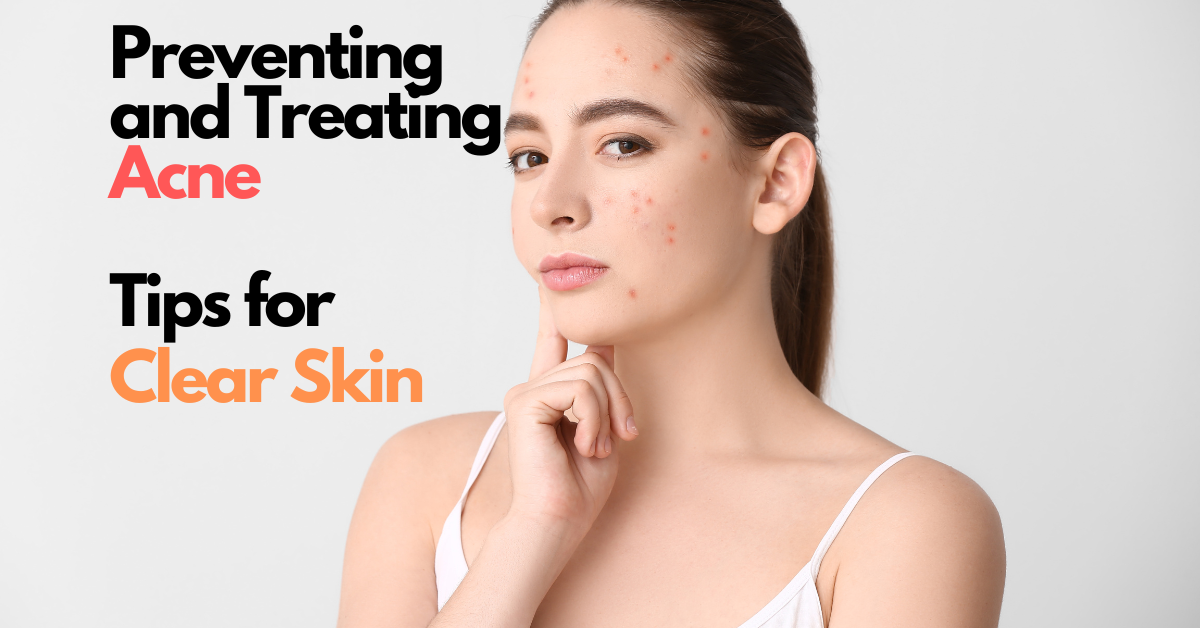It’s imperative to take proactive steps in preventing and treating acne to achieve clear and healthy skin. Acne is a common skin condition that can affect people of all ages, and it’s important to know how to properly care for your skin to minimize breakouts and blemishes. By following a few simple tips and incorporating the right skincare routine, you can effectively manage and reduce acne flare-ups, ultimately leading to smoother and clearer skin.
Understanding Acne
What Causes Acne?
The exact cause of acne is a combination of factors such as excess oil production, clogged pores, bacteria, and inflammation. Hormonal changes, diet, stress, and genetics also play a role in the development of acne.
Types of Acne
Acne can manifest in various forms, including blackheads, whiteheads, pimples, cysts, and nodules. Each type of acne requires different treatment approaches to effectively clear the skin and prevent scarring.
- Blackheads
- Whiteheads
- Pimples
- Cysts
- Nodules
Any delay in addressing acne concerns can lead to worsening symptoms and potential scarring. It is imperative to identify the type of acne you have to determine the most suitable treatment plan.
| Blackheads | Open comedones caused by clogged pores and oxidized sebum. |
| Whiteheads | Closed comedones resulting from clogged pores and trapped bacteria. |
| Pimples | Inflamed lesions filled with pus, caused by bacterial infection. |
| Cysts | Deep, painful lumps beneath the skin’s surface, requiring professional treatment. |
| Nodules | Large, solid, painful lesions formed deep within the skin, leading to scarring if untreated. |
Preventive Measures
Skincare Routines for Acne Prevention
Any effective skincare routine for acne prevention should include gentle cleansing, moisturizing, and protection from the sun. Use non-comedogenic products to avoid clogging pores, and incorporate ingredients like salicylic acid or benzoyl peroxide to target acne-causing bacteria. Consistency is key; establish a daily routine and avoid over-washing or harsh scrubbing that can irritate the skin.
Diet and Lifestyle Changes
To prevent acne, maintaining a balanced diet and healthy lifestyle is crucial. Incorporate plenty of water, fruits, vegetables, and lean proteins into your diet while limiting sugary, processed foods that can trigger breakouts. Regular exercise can also help reduce stress levels, which can contribute to acne flare-ups.
With diet, some studies suggest a link between dairy consumption and acne. Consider cutting back on dairy products and monitoring how your skin responds. Additionally, avoid excessive consumption of high-glycemic foods like sugary snacks and refined carbohydrates, as they can spike blood sugar levels and lead to more sebum production in the skin, potentially worsening acne.
Treatment Options
Over-the-Counter Solutions
While prevention is key, treating acne promptly is also crucial. To address mild to moderate acne, over-the-counter solutions containing ingredients like benzoyl peroxide, salicylic acid, or sulfur can be effective. These products work by unclogging pores, reducing inflammation, and killing acne-causing bacteria. It is imperative to follow the instructions carefully and be patient, as it may take a few weeks to see improvement. If irritation occurs, it is advisable to consult a dermatologist for further guidance.
Prescription Medications and Procedures
One of the most effective ways to treat severe acne is through prescription medications and procedures. Dermatologists may prescribe topical or oral medications like retinoids, antibiotics, or hormonal therapy to target acne at its root cause. In some cases, procedures like chemical peels, laser therapy, or extractions may be recommended to treat stubborn acne or prevent scarring. It is important to consult a dermatologist to determine the most suitable treatment plan tailored to individual skin needs.
It is crucial to note that prescription medications and procedures should be used under the supervision of a healthcare professional, as they may have side effects and interactions with other medications. It is imperative to follow the dermatologist’s instructions diligently and attend follow-up appointments for optimal results.
Maintaining Clear Skin
Long-Term Skincare Strategies
To maintain clear skin in the long run, it’s vital to establish a consistent skincare routine. This includes cleansing your face twice a day with a gentle cleanser, using non-comedogenic products, and moisturizing regularly. Additionally, incorporating a weekly exfoliation treatment can help prevent clogged pores and breakouts. Remember to protect your skin from the sun by wearing sunscreen daily and avoiding touching your face to minimize the spread of bacteria.
Managing Acne Scars and Pigmentation
Clear, even-toned skin is achievable even after battling acne. With advancements in dermatological treatments, managing acne scars and pigmentation has become more effective. Options such as laser therapy, chemical peels, microneedling, and topical creams can help reduce the appearance of scars and hyperpigmentation. It’s vital to consult with a dermatologist to determine the most suitable treatment for your specific skin concerns.
Acne scars and pigmentation can often impact one’s self-esteem, but with the right approach, they can be effectively treated to reveal smoother, clearer skin. When addressing these concerns, consistency is key, as results may take time to show. Combining professional treatments with a diligent skincare routine can help you achieve the complexion you desire.
Summing up
Hence, proper skin care is key to preventing and treating acne. By following a consistent routine that includes gentle cleansing, exfoliation, and moisturizing, as well as avoiding pore-clogging products and maintaining a healthy diet, clear skin is achievable for many. For those with persistent acne, seeking the advice of a dermatologist can provide personalized treatment options to combat more severe cases. With dedication and patience, achieving clear skin is within reach for anyone struggling with acne.
References
- “Acne: Tips for Clear Skin” – American Academy of Dermatology
- “How to Prevent Acne: 6 Tips for Clear Skin” – Healthline
- “10 Tips for Preventing Acne” – WebMD


